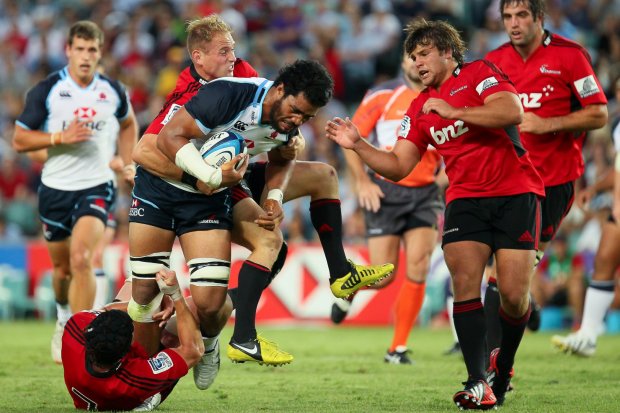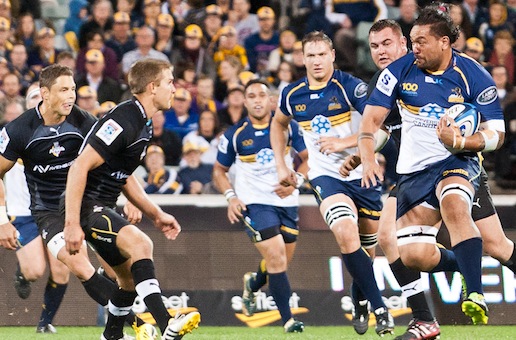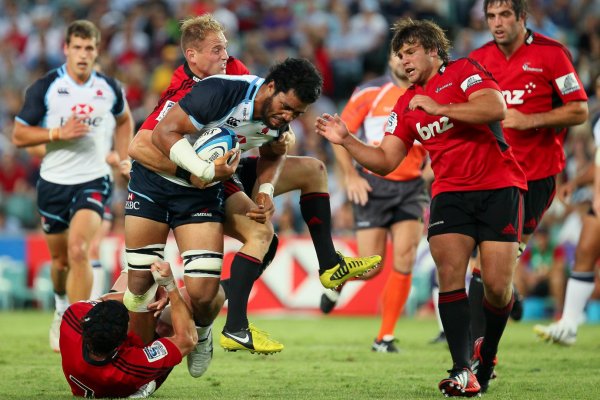There is a Super Rugby player who at the start his career was blessed with incredible, natural talent but wasn’t born with many of the privileges that a fair few of his fellow professional rugby players were given.
This player had countless meetings with all super rugby franchises and all ended with the same, shortsighted responses; too fat, lacks discipline, not serious about his rugby. Unbelievably one coach, no longer in the system, based his decision on previous players of the same ethnic background.
This player had a child at a young age and was often working extremely long hours to support the young family. He didn’t have the financial means to eat a lean, organic diet with all the latest supplements, so in the eyes of the coaching staff, that meant he wasn’t committed to his rugby.
Quite the opposite. He was doing all this and then going to training two, and if possible, three or four times a week, as he had a self-belief that he could achieve his goals. He also was lucky enough to have the support of a very good agent that went into bat for this player, time and time again.
The player then had no option but to look overseas to progress his rugby career and fight for a better life for himself and his family. He went to a second division French side, where he was able to focus just on his rugby, had time to be with his family and on the back of numerous outstanding performances, was rewarded with a top 14 contract two years after leaving Australia.
I’m very happy to report that the player above has now played in some of the highest profile teams in the world, in leagues in all major rugby nations and is now a key member of his super rugby franchise.
What’s wrong with the system
While it worked out in the end for this player, this example illustrates how often as an agent I saw players disadvantaged through various circumstances. Examples of this included; not fitting a preconceived model for what they should look or act like, receiving bad advice from a coach, relatives who think they are experts or even an agent who isn’t acting in their best interests.
I have countless examples of players that may have been from the wrong school, the wrong background or have made some poor life choices when they were younger, that have been held against them when it came to being offered opportunities.
I saw a problem that was being encountered by kids all over Australia. If these problems were happening in Australia, a sports mad, first world country, then the problems are without a doubt happening on a greater scale in other countries.
Talent identification
The recruitment model is based on a set structure that sees an athlete talent ID, at around the 13 year old age bracket. The players are identified via local, regional or state tournaments and then national carnivals. At these carnivals, players are judged on their performances over the couple of days that they are there.
As you can imagine, this can have a very limiting window for an athlete to showcase themselves. For example, if one of the players is injured, they may be judged on the standard produced on the day, or if the coach favours his or her son ahead of a better player, the player won’t be acknowledged. Also if an athlete is ill on the day, they miss their window.
The governing bodies – usually through the identified players closest feeder club, junior club or possibly the closest professional club – will invest in the player via coaching, camps, mentors and monitor the players progress.
I have seen this model start to evolve a little over the past few years. In Australia, the AFL is by far and away the most advanced in player ID and recruitment. As a comparative, the NSW Waratahs have recently appointed a dedicated talent scout, who was appointed last year. In the AFL, the Swans have over ten scouts and they have been in operation for over a decade.
Based on this model, in rugby, it is not uncommon for the agents to have a far better understanding of the next two generations of talent coming through, than many of the super rugby clubs. I have personally had to educate coaches about players in super rugby franchises, as the coaches had never heard of them. Some are now household names and playing for the Wallabies.
Take the Timani Brothers. Sita was not discovered through any investigation by an NRL or super rugby side but by an agent taking a trip to Tonga on the tip of another client. The agent then had to persuade an NRL side to sign him after all rugby sides passed. It demonstrates that for Australian rugby to attract & recruit the best talent there needs to be a recruitment model that extends beyond Joeys and Kings.
My solution
It is through this frustration from players, agents and clubs, that I developed Sporple – a professional networking site, specifically created for the global sports industry
I spoke with people from all sides of the recruitment process, including Drew Mitchell who is now a business partner. Players want to be able to gain greater control of their careers, agents want to be able to see more talent, more quickly and market their athletes in the most efficient, most direct and secure manner and clubs want as much information as possible to be able to make the best decisions they can.
I have been asked many times, ‘wont agents then fight the platform’? My answer is quite simple: it will create transparency in the market. The good agents will prosper and the bad agents will be filtered out. The good early adopters will take a competitive advantage over their competition.
The idea of Sporple is to open up the marketplace and facilitate full transparency. It allows athletes to take control of their careers and make decisions in their own time.
This can surely only be a good thing.



